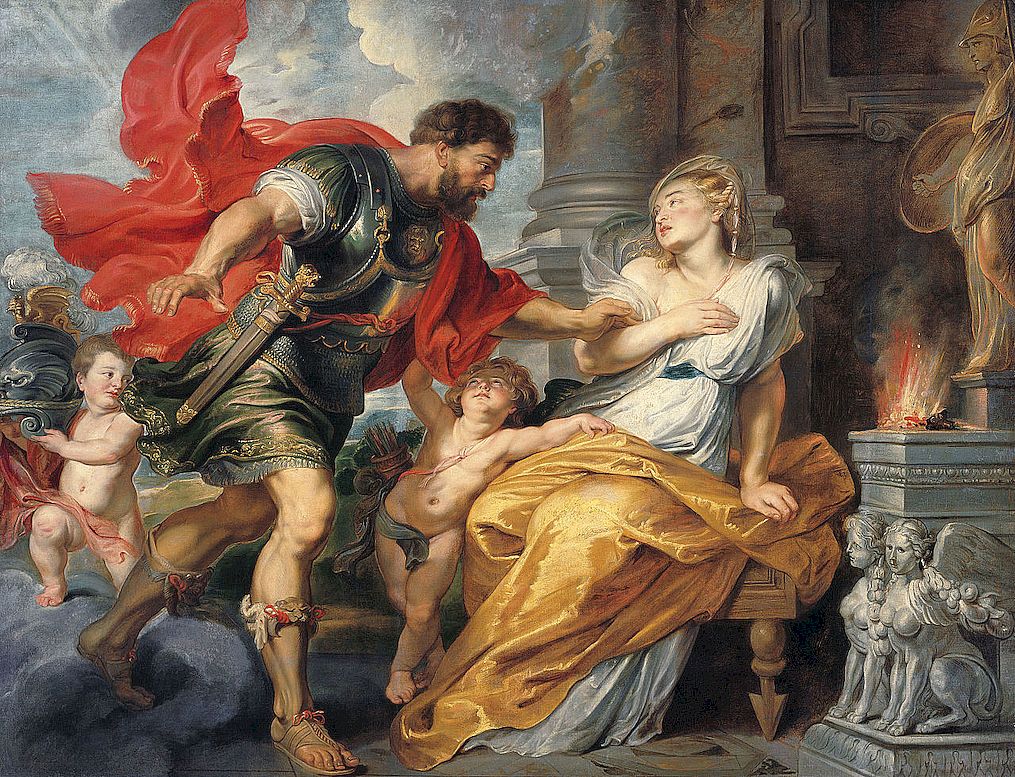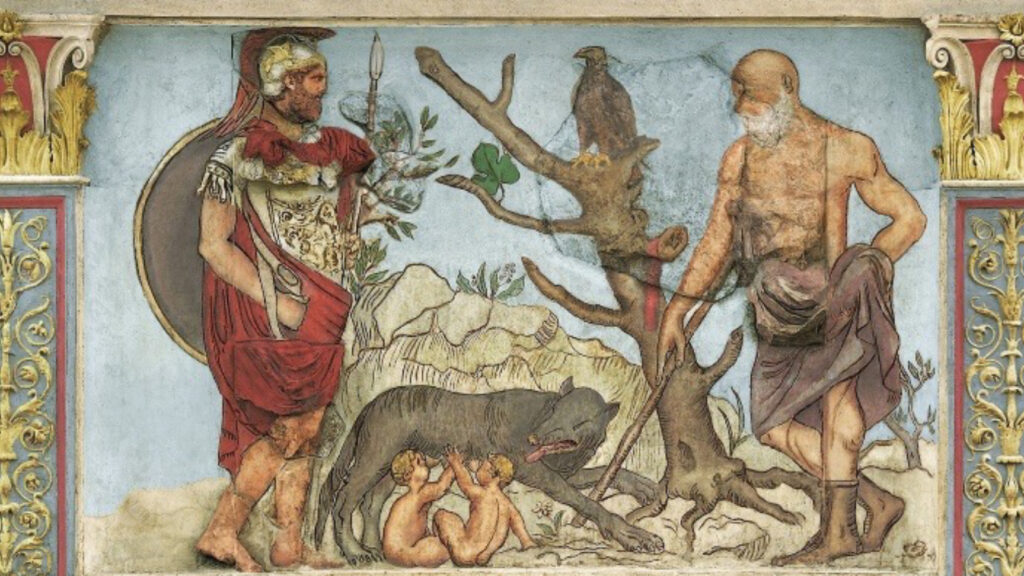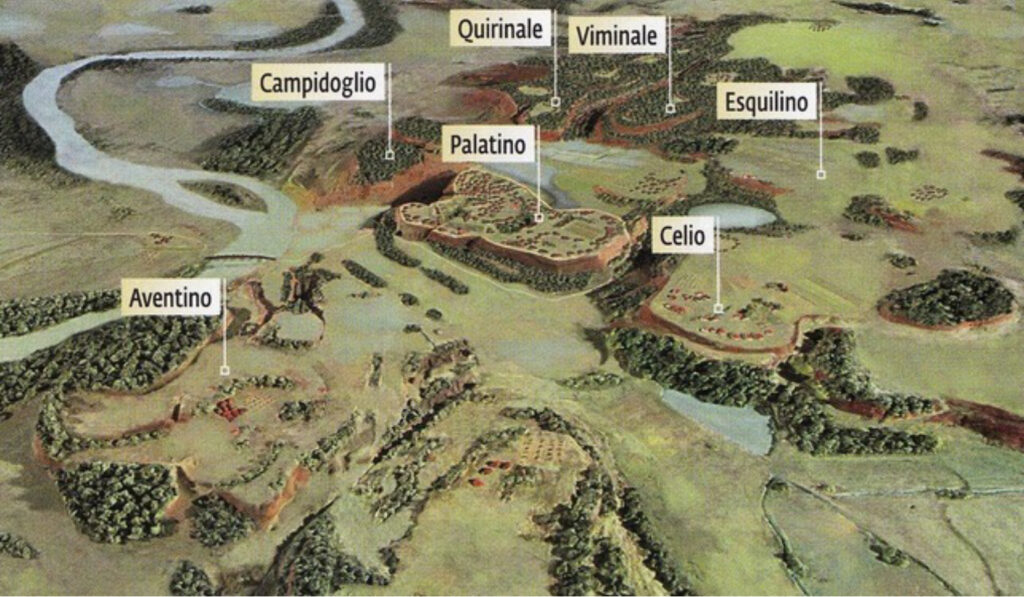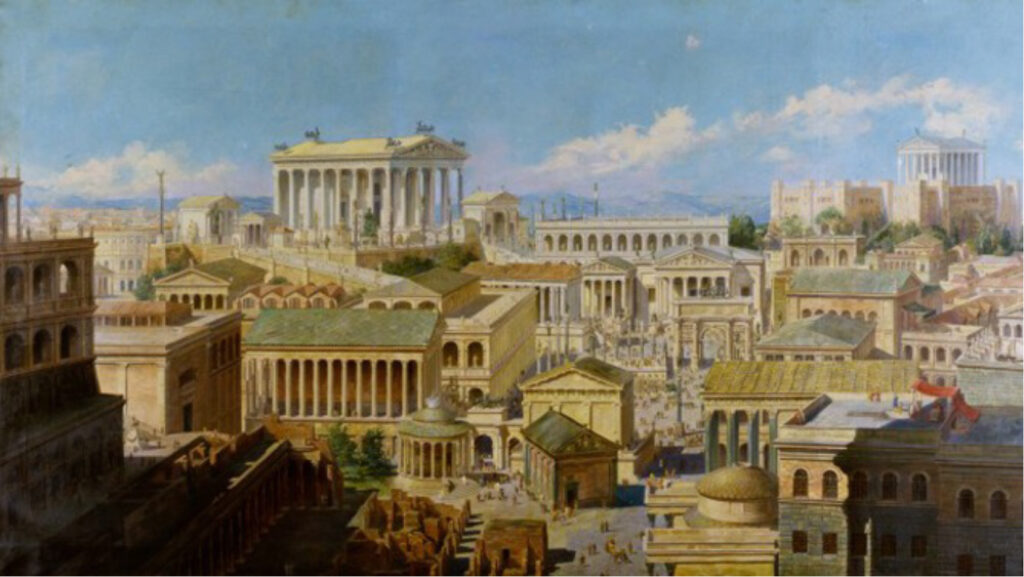The origins of Rome

The origins of Rome represent one of the most fascinating stories in Roman mythology. Legend has it that Ascanius, the son of Aeneas, founded the city of Alba Longa on the right bank of the Tiber River.
Many of his descendants ruled there until Numitor and his brother Amulius came to power. Amulius seized the throne and forced his brother’s only daughter, Rhea Silvia, to become a vestal virgin, sworn to chastity, so that she could not have any children who might claim the crown.
The god Mars, however, fell in love with her and made her the mother of the twins Romulus and Remus.
Amulius, fearing that the twins might grow up and avenge their grandfather Numitor, ordered them to be abandoned in a basket on the Tiber River, hoping they would die. However, the basket got stuck along the riverbank near the Palatine Hill, and the twins were miraculously saved by a she-wolf, who nursed them in a cave known as the Lupercal.


Later, the twins were found by a shepherd who raised them as his own sons.
As they grew, Romulus and Remus became known for their courage and adventurous spirit. When they learned of their true origins, they decided to take revenge on Amulius. With the help of a group of young companions, they attacked Alba Longa, killed Amulius, and restored their Grandfather Numitor to the throne.
As a colony of Alba Longa, in 753 B.C., they decided to found a city near the place where they had been nursed by the she-wolf, naming it ROME. However, following a dispute over the boundaries of the new city, Romulus killed his brother, thus becoming the first King of Rome. According to tradition, he ruled for many years and established many of Rome’s earliest institutions, such as the Senate and the Roman legions, expanding the city’s power and laying the foundations for the future Roman Empire.
From a historical perspective, Rome indeed began as a small village located on one of the seven hills, the Palatine Hill, but its strategic position along the Tiber River facilitated trade and defense, allowing the village to grow rapidly.
Rome was governed by seven kings for two and a half centuries before becoming a republic and later an empire, eventually expanding to dominate much of the ancient world.
The founding of Rome marks the beginning of one of the most influential civilizations in history, with a cultural and political legacy that has shaped the Western world.
Rome is a city where the past is tangible in every corner, and the signs of pre-Christian (B.C.) Rome continue to live, integrated into the modern urban fabric, offering an open window into the life and culture of the ancient Roman civilization.

